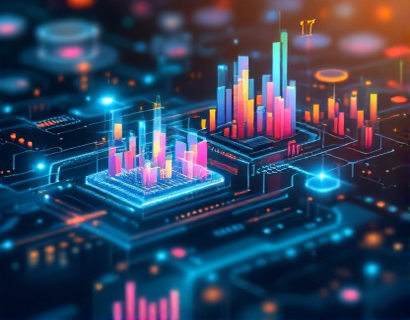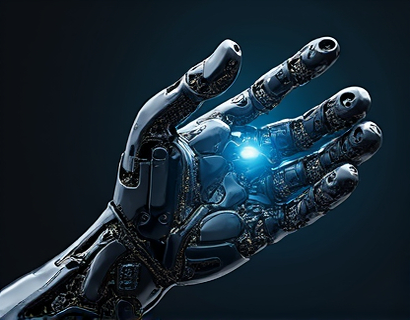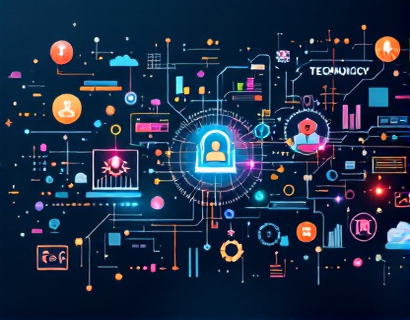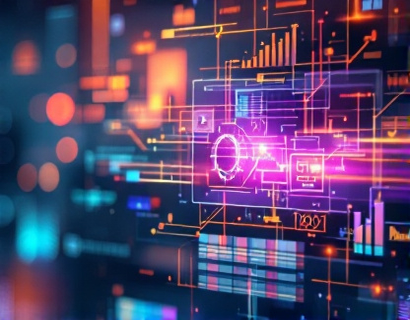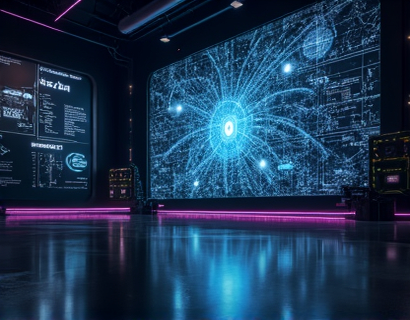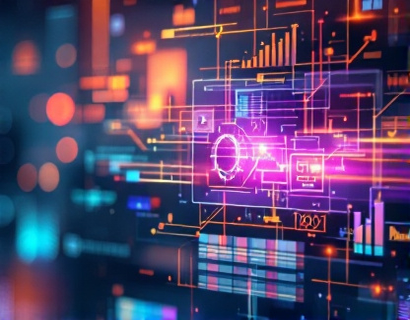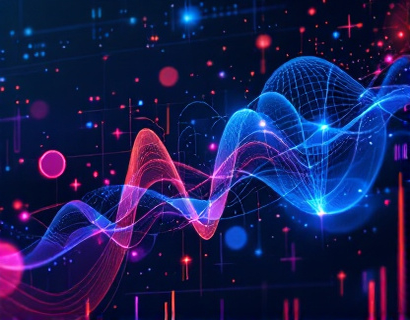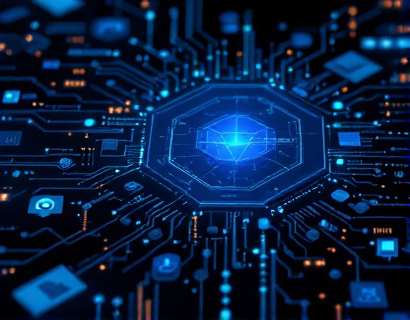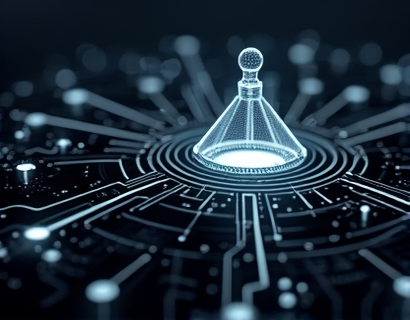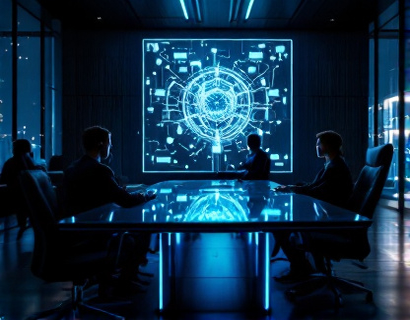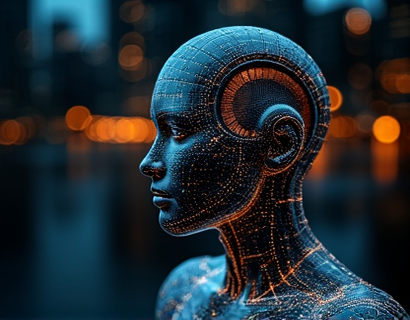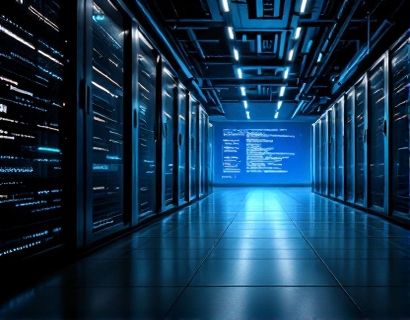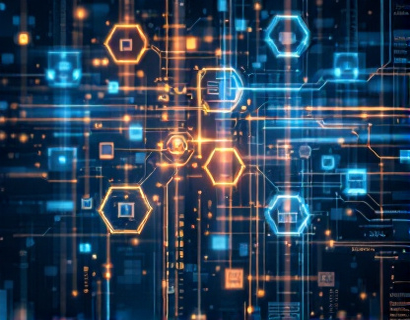Unlocking the Next Generation of Digital Transformation: The Synergy of Crypto and AI
The intersection of cryptocurrency and artificial intelligence (AI) is giving rise to a new era of digital transformation, one that promises to revolutionize how we interact with apps and services. This fusion of technologies is not just a trend but a fundamental shift in the way digital solutions are designed, delivered, and experienced. As we delve into this topic, we will explore the latest advancements in tech-driven applications, providing valuable insights for tech enthusiasts and professionals alike. The goal is to highlight the transformative impact of this synergy on the future of digital experiences, offering a comprehensive look at the evolving landscape of digital innovation.
The integration of AI into cryptocurrency has opened up numerous possibilities, from enhancing security and privacy to improving user experiences and operational efficiency. AI algorithms can analyze vast amounts of data to detect patterns and anomalies, which is crucial in the realm of blockchain technology where transparency and security are paramount. This synergy is not only strengthening the foundations of crypto but also paving the way for more sophisticated and user-friendly digital services.
Enhanced Security through AI
One of the most significant benefits of combining AI with cryptocurrency is the enhancement of security measures. Traditional cryptographic methods, while robust, can be vulnerable to sophisticated attacks. AI brings a new dimension to security by enabling real-time threat detection and response. Machine learning models can identify unusual patterns in transaction data, flagging potential fraud or malicious activity before it causes harm. This proactive approach to security is essential in a landscape where cyber threats are becoming increasingly sophisticated.
Moreover, AI can improve the security of private keys and wallet management. By analyzing user behavior and detecting anomalies, AI systems can alert users to potential breaches and suggest security enhancements. This not only protects individual users but also contributes to the overall integrity of the blockchain network. As AI continues to evolve, we can expect even more advanced security protocols that make cryptocurrency transactions safer and more reliable.
Personalized User Experiences
The application of AI in cryptocurrency extends beyond security to create personalized user experiences. AI-driven algorithms can analyze user preferences, behavior, and historical data to tailor recommendations and services. For instance, a crypto exchange can use AI to suggest optimal trading strategies based on a user's past trades and market conditions. This level of personalization not only enhances user satisfaction but also increases the efficiency of trading activities.
Furthermore, AI can improve the user interface and experience of crypto applications. Natural Language Processing (NLP) enables chatbots and virtual assistants to provide instant, context-aware support to users. These AI-powered assistants can answer queries, guide users through complex processes, and offer real-time insights, making the interaction with crypto services more intuitive and user-friendly. As AI technology advances, we can expect these interactions to become even more seamless and natural.
Optimized Trading and Investment Decisions
The integration of AI in cryptocurrency trading is transforming the way investors make decisions. AI algorithms can process and analyze vast amounts of market data, including historical prices, news sentiment, and social media trends, to predict market movements. This capability allows traders to make more informed decisions, potentially leading to higher returns. Automated trading bots powered by AI can execute trades at optimal times, reducing the emotional bias that often affects human traders.
Additionally, AI can help in risk management by identifying potential market risks and suggesting diversification strategies. By continuously learning from new data, these AI systems become more accurate over time, providing a competitive edge to investors. The ability to analyze complex and dynamic market conditions in real-time is a game-changer in the world of crypto trading.
Smart Contracts and AI Synergy
Smart contracts, self-executing contracts with the terms directly written into code, are a cornerstone of blockchain technology. When combined with AI, smart contracts can become even more powerful and versatile. AI can enhance the functionality of smart contracts by enabling them to make decisions based on real-time data and conditions. For example, a smart contract can automatically execute a payment when certain predefined conditions, such as price thresholds or delivery confirmations, are met.
This synergy between AI and smart contracts can streamline various processes, from supply chain management to decentralized finance (DeFi) applications. AI can ensure that smart contracts adapt to changing conditions, reducing the need for manual intervention and increasing the reliability of automated processes. As AI continues to advance, the potential applications of AI-enhanced smart contracts will only grow, further solidifying the role of this technology in the crypto ecosystem.
Decentralized AI Applications
The convergence of cryptocurrency and AI is also giving birth to decentralized AI applications, often referred to as DeFi for AI. These applications leverage blockchain technology to create decentralized marketplaces for AI models and data. In this model, users can buy, sell, and trade AI models and datasets without the need for intermediaries. This decentralization not only promotes transparency and fairness but also democratizes access to advanced AI technologies.
Decentralized AI platforms can foster innovation by allowing developers to build and deploy AI models on a secure and trustless network. Users can contribute to the development of AI models by providing data or computational resources, earning rewards in cryptocurrency. This collaborative approach can accelerate the development of AI technologies and make them more accessible to a broader audience. As the ecosystem grows, we can expect to see a proliferation of decentralized AI applications that leverage the strengths of both crypto and AI.
Challenges and Considerations
While the fusion of cryptocurrency and AI offers numerous benefits, it also presents several challenges that need to be addressed. One of the primary concerns is the regulatory landscape. The crypto industry is still navigating a complex web of regulations, and the addition of AI complicates matters further. Regulators are grappling with how to oversee these new technologies, ensuring they are used responsibly and ethically. Compliance with regulations is crucial to gain widespread adoption and trust.
Another challenge is the computational resources required for AI operations. Training and running AI models, especially those used for blockchain applications, can be resource-intensive. This raises concerns about energy consumption and environmental impact. The crypto community is increasingly aware of these issues and is exploring more sustainable solutions, such as proof-of-stake consensus mechanisms and renewable energy sources.
Privacy is another critical aspect. While AI can enhance security, it also raises questions about data privacy. The use of personal data to train AI models must be handled with care to protect user privacy. Implementing robust privacy-preserving techniques, such as differential privacy and homomorphic encryption, is essential to maintain user trust and comply with data protection regulations.
Future Prospects
Looking ahead, the integration of AI and cryptocurrency is poised to drive significant advancements in digital transformation. As AI technologies continue to mature, we can expect more sophisticated applications that further enhance the crypto ecosystem. One area of focus will be the development of AI-driven decentralized autonomous organizations (DAOs), which can operate with greater autonomy and efficiency. These DAOs can manage funds, make decisions, and execute strategies based on AI insights, reducing the need for centralized control.
Another promising direction is the integration of AI with other emerging technologies, such as the Internet of Things (IoT) and 5G networks. This convergence can lead to more interconnected and intelligent systems, where crypto and AI work in harmony to create seamless and secure digital experiences. The potential applications span across various industries, from finance and healthcare to supply chain and entertainment.
The future of digital transformation through the synergy of crypto and AI is exciting and full of possibilities. As we continue to push the boundaries of what is possible, it is essential to address the challenges and ensure that these technologies are developed and deployed responsibly. The journey ahead promises to be transformative, offering enhanced user experiences and new opportunities for innovation.






